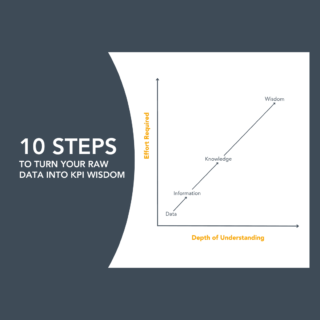It’s easy to focus on all that goes wrong with measurement in our workplaces, on all the negative feelings and experiences people have and, as a result, avoid using them. But do we have to feel this way? Or could our organizations achieve the opposite?
In yoga practice, we call it bliss and if bliss is a state of mind where we feel utter joy (even when doing hard things), then what might be the possible conditions that help us humans feel that same level of joy when it comes to performance measurement?
Do a google search of “Measurement Bliss” and nothing comes up (not surprisingly, I guess). Yet, if people only knew (to quote measurement rock star Dean Spitzer) that when measurement is done well, it has the power to transform organizations. It not only shows us how we are performing now but can also get us to wherever we want to be in the future, by indicating when and how much we are improving. Measurement is fundamental to high performance, to improvement, and ultimately to the success of your organization (or in any other area of human endeavour – just ask any professional athlete).
Three Mindsets to empower Measurement Bliss
Seek the Truth above all
The pursuit of knowing what performance is truly doing promotes a positive state of mind, even if it is bad news, because we know the truth and when we have this critical information, we can do something with it. It drives us to prove we are improving.
Promote Pace over Perfection
Keeping a steady progress forward, embracing experimentation, and applying scientific testing of our strategy (which is a hypothesis) will help keep us positive because we are continuously discovering what is working and what isn’t when we measure well. The pursuit of perfection in our measurement just cripples us and keeps us in judgement of ourselves and others, reinforcing bad habits instead of overcoming them.
Commit to a Repeatable Measurement Approach
Yoga and meditation both have rigorous methods that require dedicated practice to achieve bliss. The same goes for measurement: If organizations adopt a repeatable measurement process that considers both statistical rigour and human buy-in, the pursuit of measurement bliss becomes amplified.
Five Conditions that improve our Measurement Practice
If bliss is defined as pure joy or utter happiness, it has less to do with the achievement of perfection than with our state of mind as we strive to improve. Once we believe in the fundamental power of measurement done well and have adopted a repeatable KPI Approach (like the PuMP® Blueprint), that inspires us to move beyond “having measures” to “using measures” then we can focus on regulating our state of mind with these five conditions.
- Be Calm: relax and breathe, and don’t take it all so seriously. It’s just measurement. With the PuMP® KPI approach, it’s absolutely going to be incrementally better than before. Remember other things you have practiced in your life and have become good at; remember how much satisfaction practice over time (with a sport, an instrument, a hobby such as bee keeping, quilting, etc.) has brought you.
- Stay Focused: don’t take on too much at once; just one PuMP® measurement step at a time, with one goal at a time. Pay attention to following each PuMP® technique as it is outlined, and to what your team members need to understand about it. Notice what is changing from your past habits.
- Be Confident: begin to practice without too many expectations of yourself or your measurement teammates. Treat each step forward as another round of practice, and remember, you are all doing the best you can. Keep up the pace and get off the hamster wheel that can be brought on by striving for perfection.
- Be Curious: have fun noticing what happens, noticing what works and what you might do better next time. Take note of what extra reading or review you might need. Be curious about what your team members have to say about the experience too. Think of learning as the most blissful state to be in.
- Be Collaborative: enjoy the skills, perspective, and capabilities that each person can bring when your team is working to achieve a goal. Notice the capabilities that may need to be reinforced in collaborative practice and remember that you don’t need to have them all. Invite others with specialized skills like writing formulas and accessing data to join the step that requires these specialized skill sets. Hard things are better done with others than alone.
Doing Measurement in a joyful state is possible if we realize that it is not about hitting our targets and collecting our bonuses; but rather being in pursuit of evidence that proves we are improving or, just as importantly, if we are not. It is only when we know and can handle the truth, that using measures can bring us to the point of performance bliss where great measurement is celebrated.



